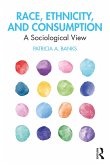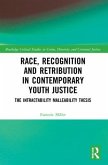Examining in detail the apparently inexorable polariation of society in such countries as Rwanda, Algeria, and South Africa, the author questions whether current theories correctly explain the past or offer adequate guides for the future. In their place he puts forward an alternative neo-Durkheimian view of the possibility of non-violent revolutionary change, based on the development of such social and cultural continuities as already exist within each plural society. Written in the turbulent early 1970s, the book demonstrates the inadequacy of then prevailing views such as Marxist interpretations of racial conflict as class struggle, and the Fanon a priori rejection of non-violent techniques of change, which Kuper holds responsible for the acceptance of what he calls the platitudes of violence.
Hinweis: Dieser Artikel kann nur an eine deutsche Lieferadresse ausgeliefert werden.
Hinweis: Dieser Artikel kann nur an eine deutsche Lieferadresse ausgeliefert werden.








